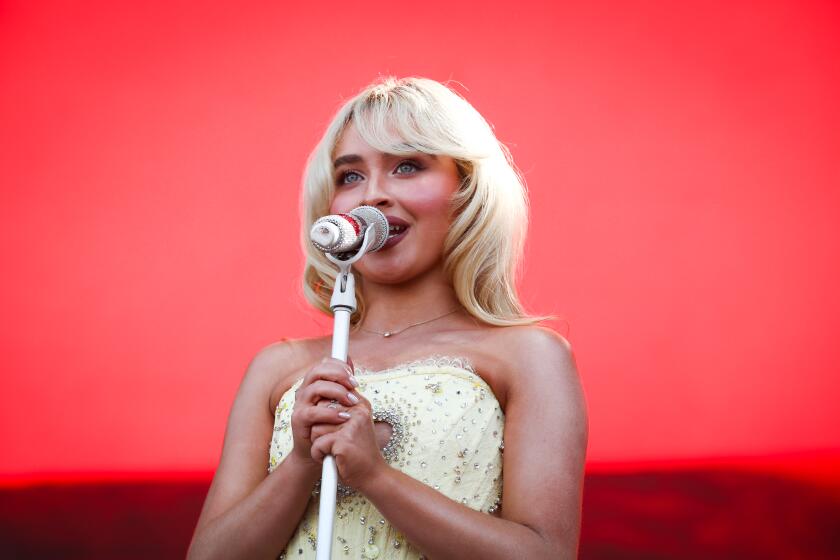‘If she’s going to headline, I’m going to headline:’ Black women reflect on the power of Beyoncé at Coachella
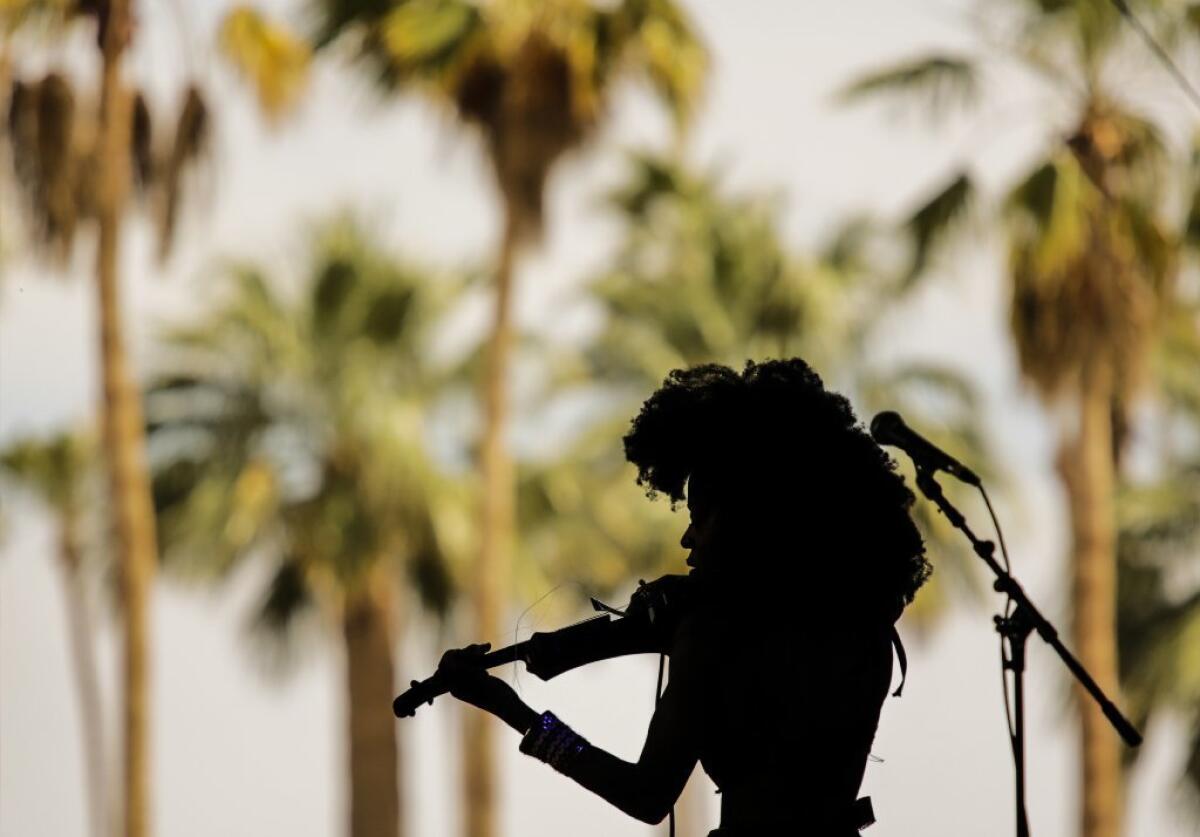
With a record number of female artists on the lineup and Beyoncé becoming the first black woman to headline the Coachella Valley Music and Arts Festival, this was a history-making year for the event, which just wrapped its 19th edition.
Beyoncé’s performance, which paid homage to the culture of historically black colleges and universities as well as the history of black music, was a grand-scale celebration of the artist’s heritage. Yet the effect of Beyoncé was felt beyond just her booking.
She was far from the only notable black woman turning heads at the festival. From hip-hop to neo-soul to experimental music, black female artists made a strong showing at the festival this year and showed what a diverse, mutli-artist, multi-genre event could look and sound like.
We spoke to several black female artists who performed at the massive festival, which drew about 125,000 people to each of its two weekends, about the significance of the pop star’s critically acclaimed performance and what it means to be a black woman in Coachella’s notoriously white space.
Tank Ball
Singer and poet Tarriona “Tank” Ball fronts the five-piece jazzy funk New Orleans collective, Tank and the Bangas.
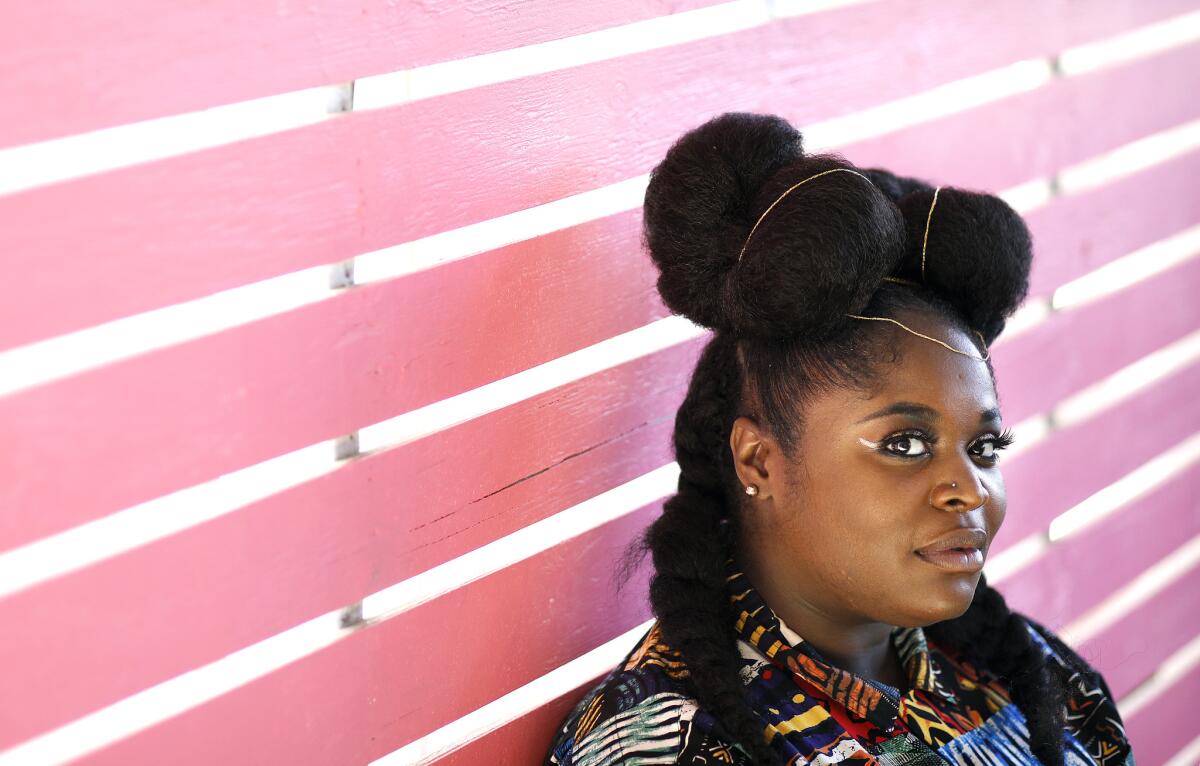
The tone of Tank and the Bangas Coachella set was part gospel revival, part Cotton Club-era jazz and part poetry slam mixed with the theatrics of a Broadway spectacular.
Lead singer Ball is as nimble a lyricist as she is a vocalist, with a malleable voice that's powerful in its command. One moment, she's unpacking sinewy couplets and rhymes with fury and the next, she's wailing like she's at a church revival.
Ball said the significance of Beyoncé’s performance was not lost on her.
“It’s just so special because you know that you’re literally a part of the history that’s being made,” she said. “You’re not reading about it; you’re not watching it on your phone like everybody else.”
Ball also expressed hope that the overall diversity of the bill was a sign of things to come.
“To be a part of that is definitely special to me,” she said. “I don’t just do it alone; I definitely have special, powerful, smart, brilliant women around me constantly.”
Sudan Archives
A violinist and singer, Sudan Archives fuses R&B with experimental electronic music.
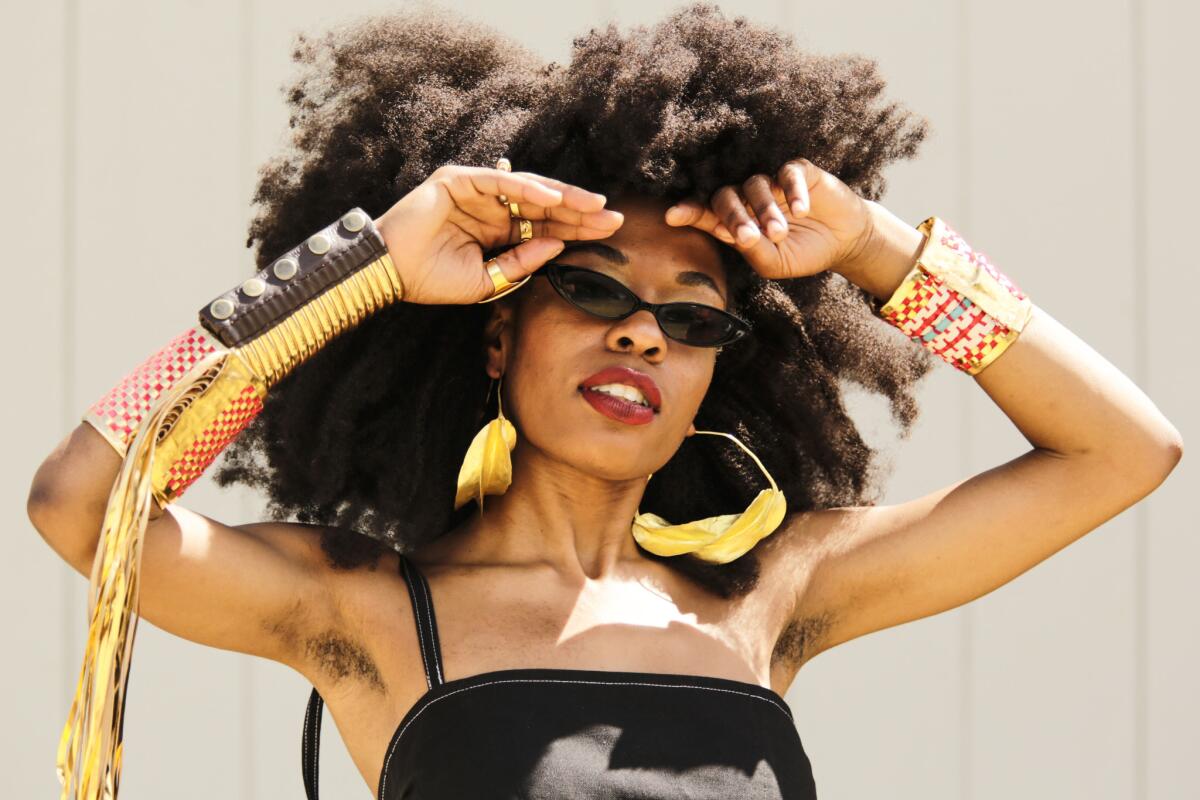
Sudan Archives is “black girl magic” personified. Rocking a voluminous afro and flanked by skilled contemporary dancers, she left audiences mesmerized with her Coachella set that featured haunting violin music and sultry vocals.
The L.A.-based artist sang and played the instrument accompanied by clattering yet hypnotic percussion grooves, which she triggered on a small electronic box that served as her only bandmate.
The name comes from the musician’s love of Sudanese violin culture and interest in ethnomusicology. As a Coachella first-timer, Sudan Archives said that Beyoncé’s performance on the main stage was a table-setter for the future.
"If she’s going to headline, I’m going to headline in the next five years,” she said. “Seeing her at the top means if she can do it, I can do it."
Jillian Hervey
As soul duo Lion Babe, singer Jillian Hervey and producer Lucas Goodman make tuneful, coolly sensual R&B laced with dusty vintage-vinyl samples.
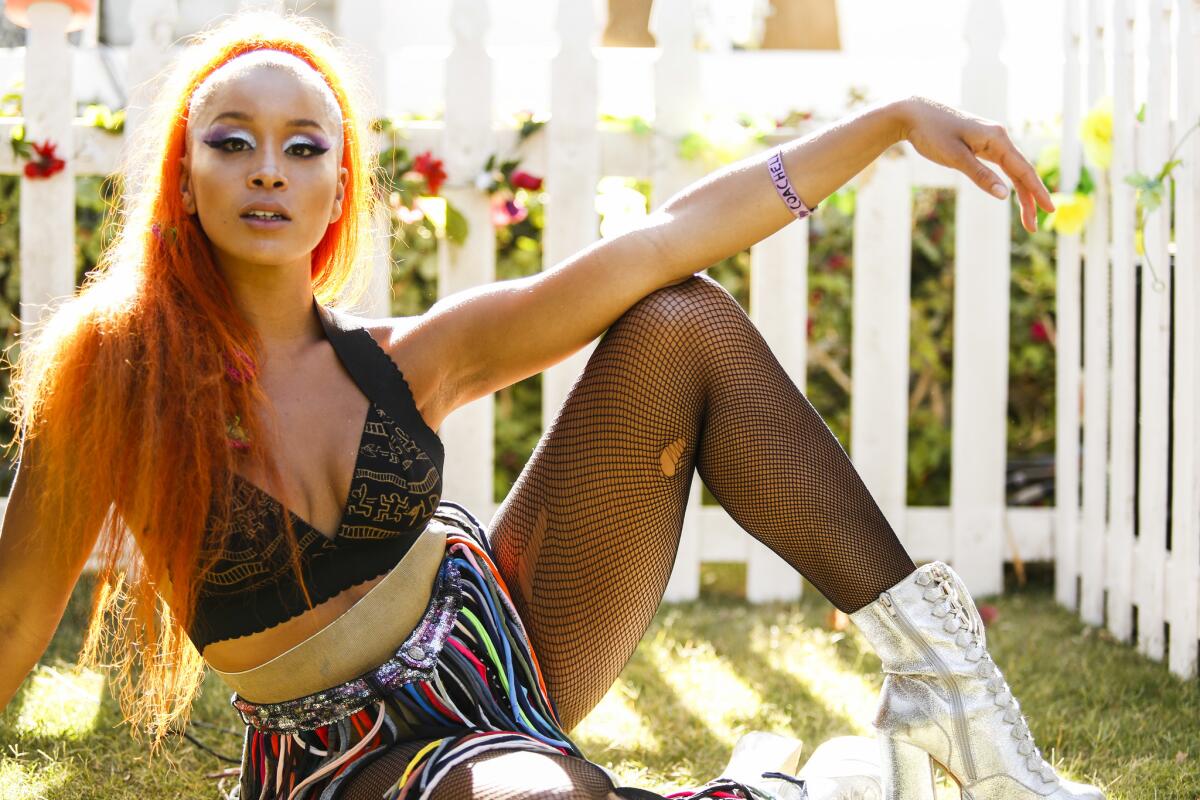
Despite an early time slot and near-100 degree heat at the second weekend of the festival, Lion Babe brought the feel-good vibes to the Coachella main stage.
The neo-soul group emerged on the scene with their 2012 single “Treat Me Like Fire,” which earned nods from the likes of Pharrell and Mark Ronson.
Hervey said the duo plans to continue spreading Beyoncé’s message of female empowerment.
“There’s so many ways to be feminine and to be a strong black woman,” she said. “It’s beautiful that this festival is giving a lot of different artists, people I know, that I’ve been watching, that we’ve been working with, spaces to really show how are they as women.”
Hervey has also looked to Beyoncé in crafting Lion Babe’s essence.
“Beyoncé has literally created such a strong aesthetic and way of her being her,” she said. “People just feel inspired by her diligence of creating that, and that’s what drives us. We want to create that same...Lion Babe energy and have that expand.”
Kamaiyah
The Oakland rapper’s sound is inspired by 90’s hip-hop and R&B.
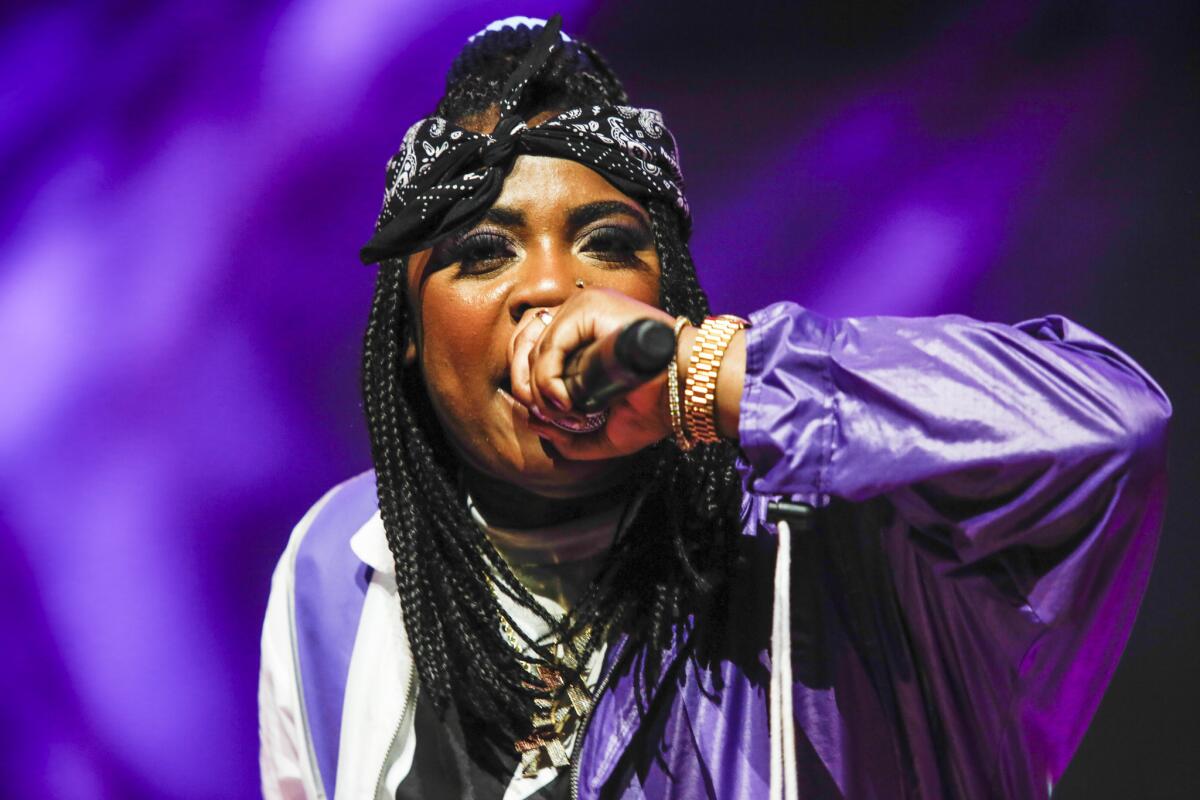
When people go to a Kamaiyah show, they go to have a good time. Kamaiyah continues to be a scene stealer with her eclectic and energetic mix of wistful '90s-inspired hip-hop and R&B. The Oakland rapper's charismatic presence makes her a captivating watch, and she's a commanding emcee.
The rapper’s sound draws from ‘90’s era West Coast hip-hop, and her energy and stage presence transformed her Coachella set into a wild affair. But at one point, she hit pause on the party to pay respect to the other black women in hip-hop who performed at the festival.
“I got to be part of the blackest moment in history for women,” she said. “I felt it was only right to give props to all the other black people that were all on this.”
The biggest entertainment stories
Get our big stories about Hollywood, film, television, music, arts, culture and more right in your inbox as soon as they publish.
You may occasionally receive promotional content from the Los Angeles Times.

